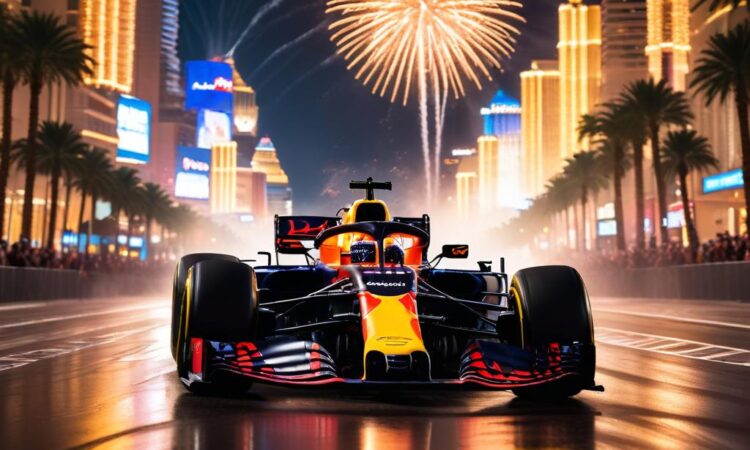F1 Q&A: Is this Verstappen’s most impressive title win?
BBC F1 correspondent Andrew Benson answers your questions following Max Verstappen’s world title win at the Las Vegas Grand Prix.
Q: Many consider this Verstappen’s most dominant title win. Is that a fair assessment, given the relative ease with which he secured the championship?
A: While the final margin of victory might not appear as staggering as some of his previous triumphs, labeling this Verstappen’s “most dominant” win requires nuance. The sheer consistency throughout the season, coupled with Red Bull’s undeniable pace advantage, undoubtedly contributed to his success. However, previous seasons saw Verstappen battling more closely with Lewis Hamilton, creating intense, nail-biting finishes that added a different layer of drama. This year, the challenge was arguably less intense, albeit still requiring exceptional driving and strategic calls. The dominant nature stems less from a razor-thin points margin and more from Red Bull’s overall package and Verstappen’s masterful execution of the plan. Therefore, “most dominant” might be a slight overstatement, but undeniably one of his most comprehensively secured titles.
Q: How crucial was Red Bull’s car advantage to Verstappen’s success? Could any other driver have won the championship in that car?
A: Red Bull undeniably had the superior car this season. The RB19 was a masterpiece of engineering, offering both speed and reliability. However, to say any driver could have won in that car is an oversimplification. Verstappen’s ability to extract maximum performance from the car, his exceptional racecraft, and his strategic awareness were all crucial elements in securing the championship. Other drivers might have achieved good results, but Verstappen’s mastery of the car and his consistency under pressure arguably made him the only one capable of achieving such a dominant victory.
Q: The Las Vegas race itself wasn’t particularly dramatic compared to some previous title-deciders. Did the anticipation leading up to it outweigh the race’s on-track excitement?
A: The build-up to the Las Vegas Grand Prix was undeniably electrifying. The possibility of Verstappen clinching the title under the lights of the Vegas Strip created a unique atmosphere. While the race itself lacked the wheel-to-wheel combat seen in some previous title deciders, the context – the culmination of a dominant season – elevated its significance. The lack of intense on-track battling didn’t diminish the monumental achievement of Verstappen securing the title in such an iconic location. The anticipation, coupled with the celebratory atmosphere, arguably compensated for a relatively less dramatic race.
Q: How does this championship win compare to his previous two? Which is his most impressive?
A: Comparing his championship wins requires looking at the contexts. His 2022 win against Charles Leclerc and Sergio Pérez involved intense competition. His 2021 victory over Lewis Hamilton was a controversial but spectacular battle for the ages. This 2023 win showcased dominance and consistency. Each is impressive in its own way. 2021 was the most dramatic, 2022 showed relentless pace, and 2023 demonstrates sustained excellence and the mastering of a near-perfect car and team. Ultimately, choosing the “most impressive” is subjective and depends on what aspects of a championship you value most – drama, intense rivalries, or sheer dominance.
Q: What are the key factors that contributed to Verstappen’s success this season, beyond just the car?
A: Beyond the exceptional Red Bull car, Verstappen’s success stems from several key factors: his racecraft, his ability to manage tires effectively, his strategic awareness, and his remarkable consistency throughout the season. He made minimal errors, maximizing points whenever possible. His psychological strength and ability to perform under immense pressure are also key ingredients in his success. His teamwork with Red Bull, contributing to the team’s overall performance, is also significant.
Q: What are the implications of this dominant win for the future of Formula 1? Will it lead to rule changes to make the competition more balanced?
A: The dominance of Red Bull this season will undoubtedly put pressure on the FIA to ensure a more balanced grid in the future. We might see rule changes aimed at reducing the performance gap between teams. However, implementing effective changes that don’t stifle innovation and make the sport less exciting is a challenge. The future will depend on the FIA’s ability to fine-tune the regulations to encourage closer competition without diminishing the overall performance level of the cars.
Q: Looking ahead, what are the potential challenges Verstappen might face in the coming seasons?
A: Verstappen will face renewed challenges as other teams develop their cars and close the performance gap with Red Bull. The introduction of new regulations could shuffle the competitive order. The emergence of a new generation of talented drivers will also present him with stiffer competition. Maintaining his dominance will require continued adaptation and a relentless pursuit of excellence. The pressure of maintaining his success will also be a significant factor in the coming seasons.
Q: Finally, can we expect Verstappen to continue his dominance for years to come?
A: Predicting the future of Formula 1 is always challenging. While Verstappen is undoubtedly at the peak of his powers, the sport is dynamic and unpredictable. The introduction of new regulations, the development of competing teams, and the emergence of new talent could all influence the competitive landscape. Maintaining his dominance will be a significant challenge, but given his skill, talent, and the current strength of the Red Bull team, it wouldn’t be surprising to see him remain a major contender for years to come. His legacy is undoubtedly already assured, but the extent of his future success is yet to be written.
This Q&A aims to provide a comprehensive overview. However, Formula 1 is a complex sport, and different perspectives are always valid. The opinions expressed here are those of the BBC F1 correspondent.

